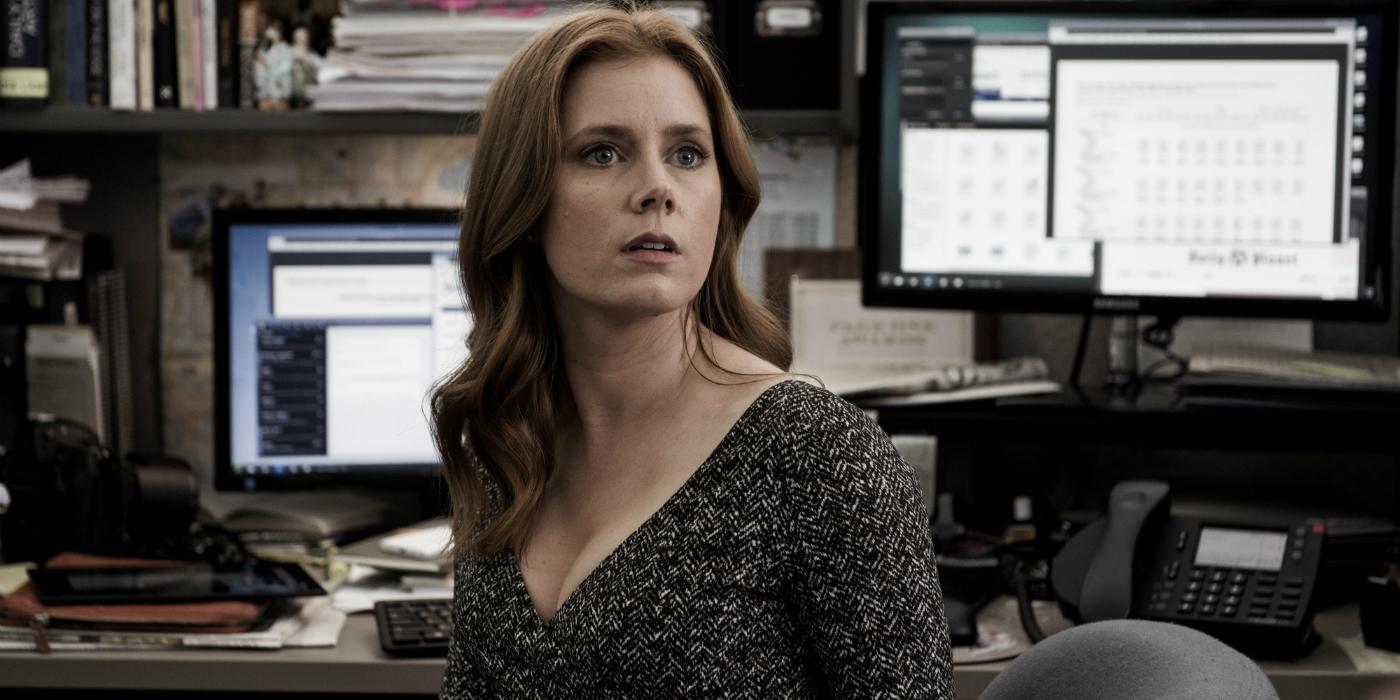Arrival, film review: Finally a sci-fi thriller that doesn’t rely on action movie clichés
Amy Adams carries Denis Villeneuve's cerebal and contemplative hit

Denis Villeneuve is currently working on the next Blade Runner movie starring Ryan Gosling and Harrison Ford. His new film Arrival (a premiere in Venice this week) is also a sci-fi movie, albeit a very cerebral and contemplative one. The film, based on cult sci-fi yarn Story Of Your Life by Ted Chiang, starts with a War of the Worlds-style alien invasion. Its plot, though,turns out to be more preoccupied with linguistics, philosophy and non-linear time than with humans in boiler suits zapping the creatures from outer space.
The main protagonist Dr Lousie Banks (Amy Adams) is a brilliant academic. In a deliberately dream-like and confusing prelude which stands as a mini-movie in its own right, we see a montage of incidents from her life with her beloved daughter. Back in the present, she is teaching in a sparsely attended lecture hall when one of her students makes her turn on the new channel on TV. A dozen oval spaced alien spaceships have arrived on earth. They’re hovering everywhere from Devon to the Black Sea. World leaders have no idea whether the spaceships have come in peace or with murderous intentions. Louise is recruited by the military authorities alongside scientist Ian Donnelly (Jeremy Renner) to try to communicate with the visitors.
The film is fascinating in its own slow-burning way as it depicts Louise’s painstaking efforts to come up with a set of language conventions that the aliens can understand. The “heptapods” are spidery creatures with starfish-shaped hands who communicate through their own incredibly complex form of hieroglyphs. They create inky patterns of circles and symbols that look elements from Jackson Pollock paintings. A jarring, minimalist score by Johann Johannsson adds to the general eeriness.

This is one sci-fi movie in which there is no attempt whatsoever to anthopomorphise the aliens. They’re not like humans. Louise is patient and dogged in her attempts to understand them but she has no time. Across the world, everywhere from China to Russia to Sudan, military forces are gathering, ready to try to blast the aliens back to the galaxy whence they came. In the wake of their arrival, the stock market has collapsed, looting is widespread and there is a very real danger that the superpowers, instead of joining forces to deal with their new visitors, will soon turn their weaponry on each other.
Amy Adams is a very versatile actress, equally adept at playing con artists and ingenues; in appearing in screwball comedy and in very dark drama. Here, she is utterly credible as the academic so passionate about her work that she hardly seems to notice that Armageddon may be nigh. This is a Hollywood movie in which semantics matter. The difference between “weapon” and “tool” is crucial for the future of humankind.
Villeneuve has assembled a strong supporting cast. Forest Whitaker is a furrowed-browed, no-nonsense US military Colonel, trying to get Louise to hurry up and crack the code that will enable her to understand the Heptapod language. Michael Stuhlbarg is the vaguely sinister intelligence chief type, ready to turn against Louise if he even suspects that she is compromising national security. They, and Renner’s scientist, are all subservient to Adams, who carries the movie.
Occasionally, when characters breathlessly utter lines about language and time being “not the same” for the aliens or we’re suddenly whisked into the past or future, the film can seem a little silly. It’s heartening, though, to encounter a science fiction thriller that is ready to deal with abstract ideas and that doesn’t rely on the slightest on action movie clichés.
Join our commenting forum
Join thought-provoking conversations, follow other Independent readers and see their replies
Comments
Bookmark popover
Removed from bookmarks